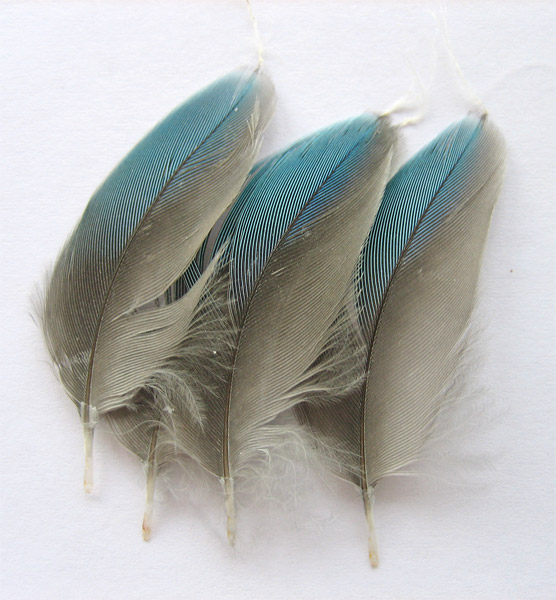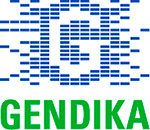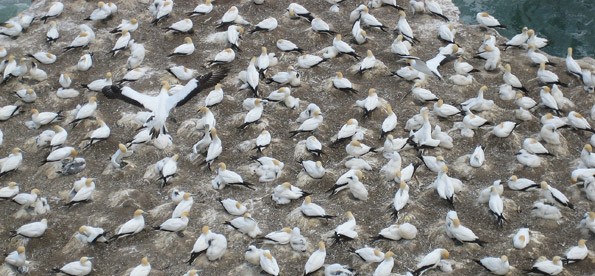Birds
Gendika has performed DNA-analyses in birds for almost 20 years . The most common analysis is bird sexing using feathers, which is well-known among bird keepers across Europe. Amongst our customers are zoos and bird breeders, as well as private bird keepers.
Besides sexing there are several other possibilities for DNA-analyses in birds. Select an item in the submenu for more information.
Bird sexing
In many bird species, external sex characteristics are lacking and the sex of an individual bird cannot be determined from its appearance. To determine the sex of such a bird, DNA-analysis performed on plucked feathers is a fast and reliable method. Gendika has performed bird sexing on DNA obtained from feathers for almost 20 years. In birds, males possess ZZ sex chromosomes, while females contain ZW sex chromosomes. For bird sexing, a sensitive method is used to detect a small part of the DNA of the sex chromosomes. Bird sexing can be performed on all bird species.
Advantages of bird sexing using DNA from feathers:
 Only feathers are needed to perform the analysis.
Only feathers are needed to perform the analysis.- There is no need to transport the bird to a veterinarian or to anaesthetise the bird, while this is needed for endoscopic research.
- The analysis can be performed on birds of all ages; DNA can even be obtained from the bird’s eggshell.
How to collect your samples for bird sexing:
- Gendika prefers the use of plucked feathers as a source of DNA, but a blood sample may also be used.
- To perform the analysis, 5-7 plucked feathers are required. We recommend using chest-feathers. Moulted feathers cannot be used.
- Take care not to touch the feather shaft (i.e. the tip of the feather that is pulled out of the skin) with your hands, since this is the part we use for DNA extraction.
- Gendika provides coded sample bags for free. Please request sample bags by calling: 0031 (0)598-619343, by emailing us at info@gendika.com, or by ordering them in our shop
- You will receive a package, including coded bags, a return envelope and an order form. The coded bags can be used to collect the feather samples. A separate bag must be used for each bird.
- To request a DNA-analysis, please fill out the order form and include it in the return envelope. The return envelope can be sent to Gendika by regular mail. Upon receiving your samples, Gendika will send you an invoice and the payment can be made using a bank transfer. The order form can also be downloaded here.
Results of bird sexing
- Feather samples will be processed on the day Gendika receives them. The results are usually available on the next business day.
- After the analysis has been completed you will receive the results by mail. Included are a report and a plasticized certificate with the analysis results, as well as the invoice. If you filled in your email address, you will also receive the results by email. Furthermore, you are welcome to call or email us about the progress of your samples.
Disease analyses
Gendika offers tests to detect the presence of the following infections:
PBFD-virus:
Psittacine Beak and Feather Disease (PBFD) is caused by a circovirus. PBFD commonly occurs among psittacines, but there is no known cure. Symptoms of PBFD include weight loss, feather abnormalities, an abnormal beak and eventually death of the bird. Transmission of the PBFD-virus occurs via direct contact with infected faeces, infected materials and surfaces (e.g. cages) and feather dust.
Polyoma-virus:
Adult birds may be carrier of the polyoma-virus. If they are, the birds may remain healthy for a long time, but will start showing disease symptoms after encountering a stressful situation. Infected birds without disease symptoms form a potential danger to other (young) birds. Transmission of the polyoma-virus occurs via infected dander, feather dust and faeces. In most cases, the virus is deadly to young birds (15 to 60 days of age). Symptoms include loss of appetite and the occurrence of subcutaneous bleeds. However, cases of birds dying from polyoma-virus without showing disease symptoms are known.
Parrot fever/Chlamydiosis:
Parrot fever (also called psittacosis or chlamydiosis) is caused by Chlamydophila psittaci bacteria. An infection with this bacterial species causes a loss of appetite, dehydration, diarrhea and conjunctivitis. If diagnosed in an early stage, parrot fever can effectively be treated with antibiotics. Parrot fever forms a health risk to humans as they may also be infected.
Pacheco’s disease:
Pacheco’s disease is caused by a herpesvirus. Seemingly healthy birds may carry the virus in a latent state. However, after the bird is exposed to a stressful situation, the virus will start causing disease symptoms. As soon as this happens, the infection with Pacheco’s disease will be deadly. The first symptoms of Pacheco’s disease are feather abnormalities and discoloured (yellow) faeces.
Sample material:
To detect the presence of the PBFD-virus, polyoma-virus and Pacheco-virus, a blood sample of the bird is needed (a single blood-drop suffices). Gendika advices her customers to let a veterinarian draw blood, however, customers can send in blood samples themselves. Gendika provide vials for the collection of blood free of charge. To detect parrot fever/chlamydiosis, a swab of the cloaca of the bird is required. Samples for parrot fever can only be sent in by a veterinarian. Please ensure that swab- and/or blood samples are accompanied by a signed order form. The order form can be requested by calling: 0031 (0)598-619343, by emailing us at info@gendika.com, or can be downloaded from our website.
Results of disease analyses:
- Blood- and swab samples will be processed on the day of their arrival at Gendika. After approximately two business days, the analysis results will be available.
- After the analysis has been completed you will receive the results by mail. Included are a report and a plasticized certificate with the analysis results, as well as the invoice. If you filled in your email address, you will also receive the results by email.
- In case the analysis results indicate that your birds are infected, we recommend that you contact your veterinarian. Your veterinarian can inform you about the appropriate measures to prevent further infection and treatment of the infected bird(s).
Parentage analysis
The hereditary information of every living organism is carried by its DNA. The DNA contains a genetic code that uniquely defines an individual. Two individuals can only possess identical genetic codes if they are identical twins. The genetic code is fixed throughout an individual’s lifetime. By analysing the DNA, the genetic code of an individual (the so-called genotype) can be determined. This genotype can be used to identify an individual. DNA-genotyping is useful for several purposes, a few examples are described below.
- Parentage analysis: The DNA-genotype of an individual is derived from the DNA-genotype of both parents; offspring inherit 50% of their genetic code from their mother and 50% from their father. Parentage analysis uses this information to determine an individual’s origin. Whether an individual is indeed an offspring of its suspected parents can be determined by comparing their DNA-genotypes.
- A DNA passport: The DNA-genotype of an individual may be used a “passport” that can later be used to identify the individual. This passport may for instance identify a bird that has been stolen.
- Genetic diversity: The amount of genetic diversity within a population can be determined by comparing DNA-genotypes within the population. This information may be used to determine the strategy of breeding programmes of endangered species.
Requesting DNA-genotyping/parentage analysis:
During the almost 20 years of her existence, Gendika built up considerable experience in DNA-genotyping using different bird species, such as pigeons, birds of prey, owls, psittacines and cranes. DNA-genotyping cannot be performed in all species. If you would like to request DNA-genotyping, please contact Gendika so we can investigate whether DNA-genotyping is possible in your bird species. As the source of DNA, plucked feathers or a blood sample may be used. Moulted feathers cannot serve as a DNA source. Per bird, approximately 8 feathers are required to perform the analysis. Sampling material can be requested by calling: 0031 (0)598-619343, by emailing us at info@gendika.com, or by filling out our information request-form. After completion of the analysis (approximately 3 weeks after Gendika received the samples), you will receive an analysis report containing the results. In most cases, payment can be made afterwards, by direct debit or a bank transfer based on the invoice you will receive with the results. The price of parentage analyses depends on the number of samples to test. The maximum price is €42,35 (including VAT) per individual.





